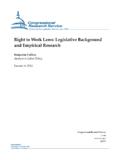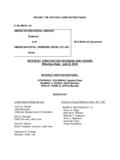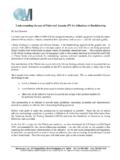Transcription of 139711 INNER OD - Friedrich Ebert Foundation
1 Trade Unions In BotswanaJuly 2008 Country Report Published by Botswana OfficeISBN 99912-443-5-8 Copies of this publication can be obtained from: Friedrich Ebert Box 18, Gaborone, BotswanaTel.: +267-3952441 Fax: +267-3930821E-mail: .. iForeword .. iiAbbreviations and Acronyms ..iiiExecutive Summary .. iv1 SOCIO-ECONOMIC AND POLITICAL ENVIRONMENT ..1 General Economic Status .. 1 Political Structure & Developments .. 2 Macro-Economic Conditions .. 2 Total Labour Force Employment .. 2 Formal Employment ..3 Unemployment and Under-employment .. 4 Economic Growth, Poverty and Inequality .. 4 Causes of Poverty in Botswana .. 52 DEVELOPMENT OF LABOUR LEGISLATION IN BOTSWANA ..6 Historical Overview .. 6 Current Legal Environment for Labour Relations in Botswana .. 7 Ratified ILO Conventions by Government of Botswana .. 8 Recent Trends in Labour Relations.
2 9 Trade union and Employers Organisations Act (Cap 48:01).. 10 Employment Act (Cap 47:01) .. 11 Trade Dispute Act, 2003 .. 12 Wages Setting and Collective Bargaining .. 13 Trade union Representation on Tripatite Forum .. 153 TRADE union PROFILE IN BOTSWANA .. 16 Trade union History in Botswana .. 16 Trade union structures, Centres and Organization of Individual unions .. 16 Structure and Organisation .. 16 Membership Density and Trade union Development .. 17 Relationship of Trade union Centre and Affiliates .. 18 Fragmentation and Almagamation of the Trade Unions .. 18 Internal Organization and Finances .. 20 Services offered to 20 Services Offered by Individual Unions .. 20 Investments by Individual Unions .. 21 Government-trade union relations .. 21 Role of Trade Unions International Co-operation and Networking .. 224 TRADE union CHALLENGES AND STRATEGIC RESPONSES.
3 22 Internal Organizational Challenges .. 22 Structural/ Institutional Capacity .. 22 Fragmentation of the Trade Unions .. 23 union Consciuosness and Solidarity .. 23 Legislative Framework .. 23 Trade union Education and Training Programmes .. 23 Information base, Linkages and Networking .. 23 Trade union Strategic Responses .. 24 Revitalisation and Restructuring the Administrative Framework .. 24 Rekindle the Ideals, Values and Culture of Unionism and Solidarity in Affiliates .. 25 Enhancing Advocacy Through Indepth Research .. 25 Enhancing Trade union Outreach Approaches Through Education .. 25 Creating Information Linkages .. 265 TRADE union INFLUENCE AT POLITICAL AND SOCIO-ECONOMIC DECISION MAKING .. 27 REFEERENCES .. 28 APPENDICES .. 30 Socio-economic data .. 30 Summary of Labour Legislation .. 30 Trade Unionism in Figures .. 31 National Trade union Centre.
4 32 National Affiliates ..33iACKNOWLEDGEMENTSThe Friedrich Ebert Foundation , Botswana Office would like to thank Mr. Trywell Kalusopa (Lecturer, University of Botswana) and Mr. Ronald Baipidi (Former BFTU President) for the valuable contributions they made in the review, compilation and writing of this Country Report on Trade Unions in Botswana. The FES Project Co-ordinator, Botswana Office Mr. Lawrence Kefitilwe is also acknowledged for the direction, guidance and publication of the report. iiFOREWORD Since its beginning in 1925 the Friedrich Ebert Foundation is committed to the concepts and basic values of social democracy and the labour movement. Ever since we started our international programmes in the early 1960 s we had a special focus on strengthening of our trade union partners all over the labour movement in Botswana today faces many challenges which make it difficult to have a significant impact in the country.
5 The need for the labour movement to restructure and consolidate union structures continues to remain at the core of its most important challenges. In line with its broad historical principles and mandate, Friedrich Ebert Foundation (FES) continues to support the labour movement so that it can increase its influence and strength. The FES has found it imperative to assist the institutional capacity building of the labour movement in terms of leadership development, research, training and educational programmes especially in light of current wave of the unionisation process in Botswana. It has also been actively involved in the development of the processes of restructuring and amalgamation through supporting efforts of consolidating trade union organisations into strong and viable unions. It is hoped that such programmes would strengthen the labour movement so that they are able to effectively participate in the decision-making process and social-economic reforms in the addition, over the past years, the FES has supported trade unions involvement in the political debates through the development of the general policy position papers published in 2004 and subsequently more in-depth position papers on privatisation, regional integration, economic policy, social security, education, etc, in 2006/07.
6 In particular, the FES also published the Country Report on Trade Unions in Botswana in 2003. The report covered the areas of socio-economic and political environment, legal framework and practices of labour relations, trade union profile and its challenges and prospects in Botswana. However, there have been a lot of changes in the socio-economic, political and legislative reforms that have had undue influence on the operation of Trade Unions since then. It is, thus, against this background that the FES decided to comprehensively review the 2003 Country Report given these different developments that have taken place in labour relations since then. This 2008 Trade union Country Report, therefore, documents the current trends over the past period since 2003. It is the hope of the FES that such a publication will add value to literature that exists on Trade Unions in Elischer Resident Representative iiiABBREVIATIONS AND ACRONYMNS BCP Botswana Congress Party BDP Botswana Democratic PartyBNF Botswana National Front BIDPA Botswana Institute of Development and Policy Analysis BFTU Botswana Federation of Trade UnionsCOLI Cost of Living IndexCSO Central Statistic OfficeEPA Economic Partnership AgreementsFES Friedrich Ebert FoundationGDP Gross Domestic ProductsHIES Household Income and Expenditure Survey ICFTU International Confederation of Free Trade UnionsILO International Labour OrganizationITUC International Trade union ConfederationLFS Labour Force SurveyNDP National Development PlanOATUU Organization of African Trade union Unity SANOSO Southern African Network of
7 AIDs Service OrganizationSATUCC Southern Africa Trade union Co-ordination CouncilWTO World Trade OrganizationEXECUTIVE SUMMARYThis 2008 Country Trade union Report documents details on the trends, developments and challenges of the labour movement in Botswana. The analysis, description, and profiling Trade Unions was based on document analysis and selected follow-up interviews with key stakeholders dealing with labour relations in Botswana. This was to gain insights or depth on issues arising out of document analysis based on the terms of references. The report thus presents the following: a description of the situation of the country with particular focus on the current socio-economic challenges of Trade Unions in Botswana. an analysis of legal framework and practice of labour relations covering the recent trends, establishment and functioning of Trade Unions, Trade union rights, wage setting and collective bargaining, dispute resolution and right to strike, workers participation at shop floor, trade union representation in tripartite and consultative structures, and social dialogue.
8 A narrative of Trade union profile focusing on history, membership development and union density, Trade union structures, centres and organization of individual unions, relationship of Trade union Centre and affiliates, internal organization and finances, services offered to members, government-trade union relations and role of international co-operation and networking. analysis, description and prescription of Trade union challenges and strategic internal and external responses to the current challenges. analysis, description and prescription of Trade union capacity to influence political and socio-economic decision making processes at national, regional and global report shows that, despite recent efforts through legislative reforms, the labour movement in Botswana continues to be plagued by several political and socio-economic challenges at global, regional and national levels over the years.
9 In this report, it has been noted that there has been some movement toward changes in legislative reforms meant to activate the sense of progressive renewal in the labour movement in Botswana. It is, however, observed that the decline in proactive trade union activities and lack of exploitation of the potential or opportunity to remain viable and relevant, requires that the labour movement seizes that opportunity by building more participative unionism through better strategic planning and communication so that workers can provide effective leadership to their cause at their workplaces. iv11. SOCIO-ECONOMIC AND POLITICAL ENVIRONMENT General Economic Status According to the 2005/06 Labour Force Survey (LFS), Botswana had an estimated population of 1,702,829; of which 798,460 ( ) were males and 904,369 ( ) were female with 68% of this population estimated to be economically active. The number of households was estimated at 515,294 of which 266,331 ( ) were male headed households while 248, 963 ( ) were female headed (CSO-LFS, 2006).
10 Most of the population (about 76%), live in the rural and 27 urban villages. The country has maintained a stable and steady economic growth since 1966 thus transforming itself into a middle-income country with a per capita Gross Domestic Products (GDP) of income at market exchange rate averaging about $3,800 (Ministry of Finance, 2007). The country has also made some remarkable investment and progress in education and health. Botswana largely depends on the extraction of diamonds for export. On average, this accounts for over 70-80% of its export earnings and contributes 36% of GDP. Botswana is also a large exporter of beef to the European union , though this industry now faces a myriad of problems. Agriculture only contributes about 3% of GDP. Thus, taken together, agriculture and mining contribute about 39% of the rural GDP to overall GDP. Currently, the country has placed emphasis on diversification of its economy to other sectors such as tourism which is showing potential for growth (BIDPA, 2006).








